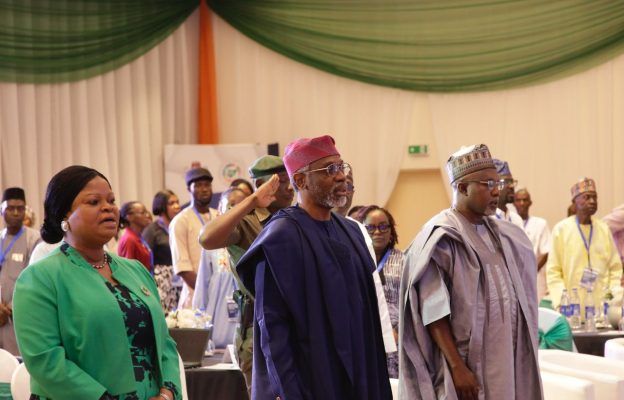Nigeria has taken a bold step towards accelerating the implementation of the Sustainable Development Goals (SDGs) with the official validation of its 2025 Voluntary National Review (VNR), the launch of the Nigeria SDGs Progress Report 2024, and the unveiling of its Inclusive Data Charter (IDC) Action Plan.
The landmark event, held in Abuja, brought together senior government officials, development partners, civil society actors, academia, and representatives of vulnerable groups in a robust show of participatory governance.
In his remarks, Chief of Staff to the President, Femi Gbajabiamila, emphasised that with shrinking global multilateral cooperation, Nigeria must intensify its internal strategies for sustainable development. “In a shrinking multilateral space, we must look inwards for sustainable solutions to our economic, social and environmental challenges,” he stated.
Gbajabiamila underscored the vital role of the SDGs as a strategic framework to guide these efforts. He noted that Nigeria’s commitment—demonstrated by the successful conduct of VNRs in 2017, 2020, and now 2025—reflected the government’s resolve to meet the 2030 target.
He commended the Senior Special Assistant to the President on SDGs, Princess Adejoke Orelope-Adefulire, for her tireless leadership in coordinating the process.
Gbajabiamila explained that the 2025 VNR followed six regional consultations held in March 2025 across Nigeria’s six geopolitical zones, which assessed progress, identified gaps, and gathered input for the upcoming HighLevel Political Forum (HLPF) at the United Nations in July.
The consultations underscored the importance of inclusive, participatory, and evidence-based approaches to fast tracking SDG implementation. In her welcome address, Princess Orelope-Adefulire told stakeholders that the national validation workshop reinforced Nigeria’s deepening commitment to the 2030 Agenda.
She noted that nearly a decade after the adoption of the SDGs at the 70th UN General Assembly, Nigeria continues to demonstrate resolve in achieving them. She referenced the 2024 United Nations SDGs Report, which showed that only 17 per cent of global targets were on track, with developing countries and the poorest populations bearing the greatest burdens.
“Lack of progress towards the SDGs is universal, but developing countries and the world’s poorest people are bearing the brunt,” she remarked. Orelope-Adefulire described the VNR process as a critical component of the HLPF review mechanism, offering transparency and accountability at the national level.
She noted that Nigeria’s 2025 VNR was the product of extensive consultations across all six geopolitical zones, including targeted engagements with persons with disabilities, youth, and children, a process reflective of the whole of government and whole of society approach.
United Nations Resident Coordinator in Nigeria, Mohamed Malick Fall, delivered a goodwill message in which he commended the Federal Government for its inclusive approach to the VNR and reiterated the UN’s ongoing technical and financial support.
Fall highlighted Nigeria’s role among the 39 countries presenting VNRs at the 2025 HLPF, offering a platform to showcase transformative and science-based strategies. He urged the workshop to produce actionable recommendations to address challenges such as poverty, inequality and climate change.
The Nigeria Governors’ Forum (NGF) echoed similar sentiments. Represented by Assistant Director, Eghosa Omoigui, the NGF Director General, Abdulateef Shittu, cited subnational progress from Kwara, Lagos, Gombe and Edo states as proof of local innovation driving change.
“Resource gaps, data limitations, and climate impacts test our resilience, but they sharpen our resolve to act smarter and leave no one behind,” he said.















